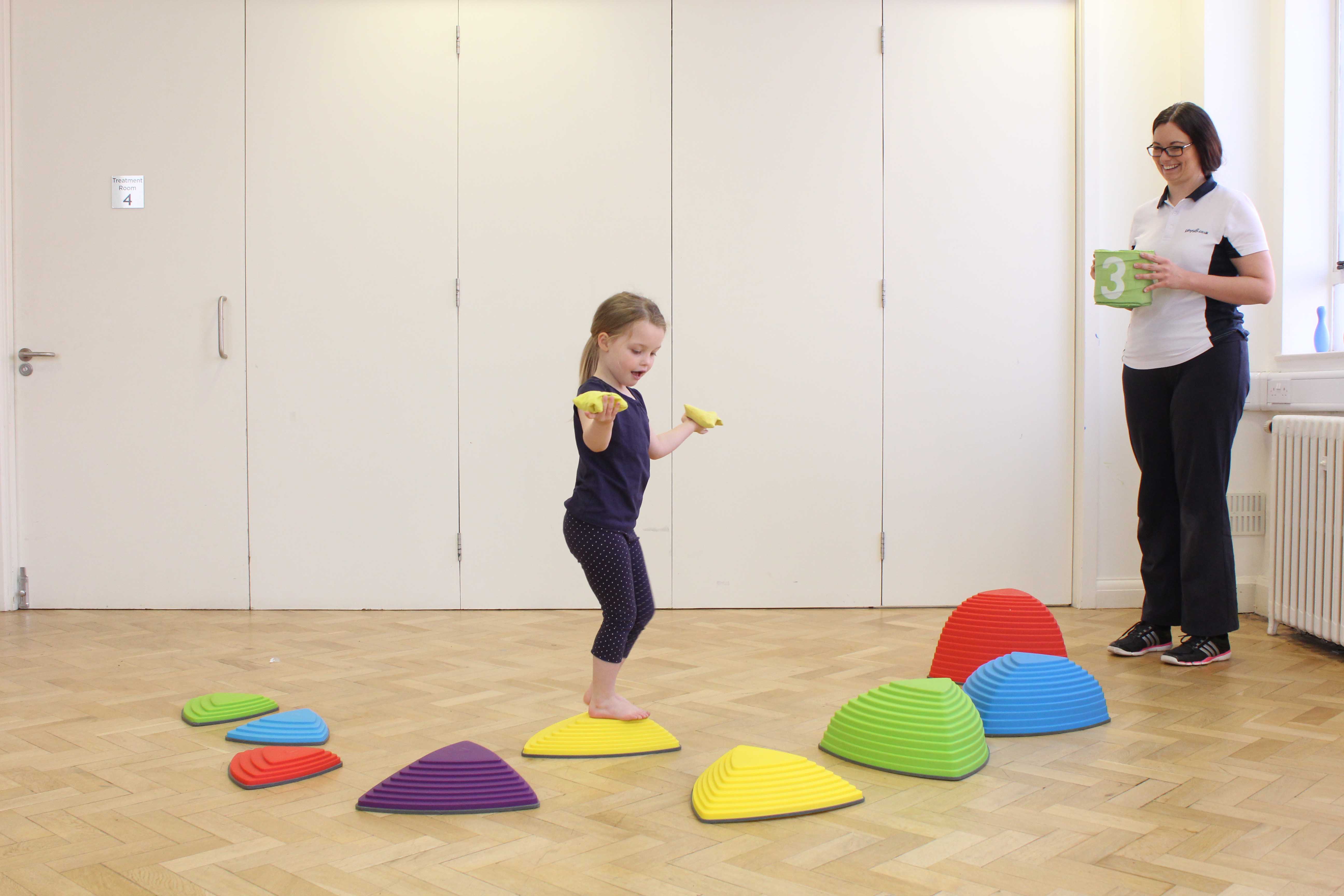What is sensory defensiveness?
Sensory defensiveness refers to a “flight or fight” response to a stimulus that most people would not interpret as negative. Children with this condition react excessively to sensory input and respond by showing negative emotions or behaviours. Children who over-react to sensory input may process sensory information from hearing, smelling, vision, balance and touch, ineffectively.
 Above: Overcomig sensory defensiveness through play activities supervised by a paediatric physiotherapist
Above: Overcomig sensory defensiveness through play activities supervised by a paediatric physiotherapistWhat causes sensory defensiveness?
There are a number of contributory factors to sensory defensiveness including genetic factors, environmental conditioning, and premature birth.
What are the symptoms of sensory defensiveness?
Symptoms of sensory defensiveness include:
- Tactile defensiveness: aversive reactions to clothing, waistbands, labels, brushing of hair and avoiding activities involving body contact
- Olfactory defensiveness: agitation and distress due to certain smells, for example toys, clothing, people
- Auditory defensiveness: fearful reactions to noises, for example crying or covering their ears to loud noise (vacuum, sirens, toilet flushing)
- Visual defensiveness: hypersensitive to light or aversive to eye contact
- Vestibular defensiveness: also known as gravitational insecurity, children display irrational fear of changing position – often aversive reactions to swinging or any movement where their feet are not firmly planted
What can physiotherapy do to help sensory defensiveness?
Initially we will assess your child to identify what the problem is, and create a treatment programme that best suits your child’s needs. At Physio.co.uk we can offer your child a rich sensory environment. Our specialist paediatric physiotherapists for example, may introduce your child to interaction and play with water, finger paints, sand etc. which can reduce excessive responses to tactile experiences. We will work to develop your child’s sensory processing in their daily life, whilst accommodating your child’s needs in a safe environment. At Physio.co.uk our physiotherapists can provide advice and education to parents regarding how to manage your child’s condition as well as recommending how to play with them. We can also go to your child’s school to advise staff on how best they can help.
Summary
Sensory defensiveness is a response to sensory input that most people would not interpret as negative. Children with sensory defensiveness often respond to sensory input by displaying negative emotions or behaviours. A number of factors are thought to contribute to sensory defensiveness such as premature birth, genetic factors and environmental conditioning. Children affected by sensory defensiveness commonly are distressed by loud noises, certain smells and activities involving body contact. Physiotherapy can help improve your child’s sensory processing.
To arrange an appointment with Physio.co.uk call now on 0330 088 7800 or for more information please contact us.

 0330 088 7800
0330 088 7800

































